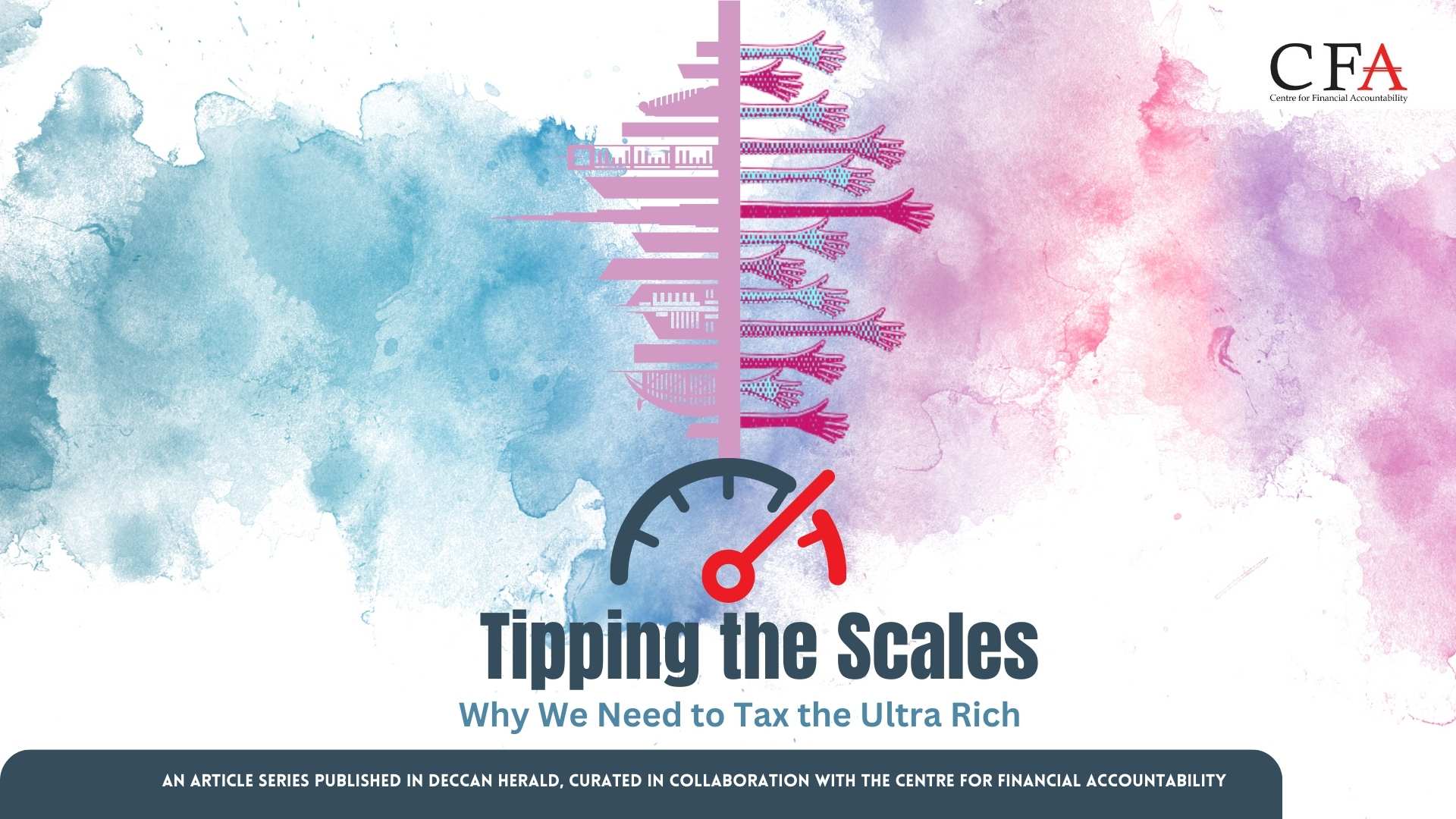An article series published in Deccan Herald, curated in collaboration with the Centre for Financial Accountability.
 Around 21,000 luxury cars were sold in India in the first six months of 2023. This represents a 16% growth over all of 2022 and is 7% more than the peak sales for the same period in 2018. In contrast, the sale of two-wheelers, which are largely bought by low and mid-income riders, in fact, has stagnated. Imports of alcohol increased 54% in the first nine months of FY23, according to an analysis of the commerce ministry’s trade data. In contrast, Nestle India has reported a loss in volumes for the Maggi Chotu pack, which costs Rs 7. The import of exotic food items such as dragon fruit, preserved olives and high-value cheese has jumped anywhere between 24% and 33%. In contrast, as per market intelligence firm NielsenIQ rural Indians have even cut back on spending on washing powder & and shampoo.
Around 21,000 luxury cars were sold in India in the first six months of 2023. This represents a 16% growth over all of 2022 and is 7% more than the peak sales for the same period in 2018. In contrast, the sale of two-wheelers, which are largely bought by low and mid-income riders, in fact, has stagnated. Imports of alcohol increased 54% in the first nine months of FY23, according to an analysis of the commerce ministry’s trade data. In contrast, Nestle India has reported a loss in volumes for the Maggi Chotu pack, which costs Rs 7. The import of exotic food items such as dragon fruit, preserved olives and high-value cheese has jumped anywhere between 24% and 33%. In contrast, as per market intelligence firm NielsenIQ rural Indians have even cut back on spending on washing powder & and shampoo.
The contrasting fortunes that these figures show are deeply worrying. It reflects a gulf that divides the ones on top and the miserable at the bottom. But it is hardly the talking point today as the masses are kept opiated on other kinds of divisive agenda. So, it does not bother us that India has been ranked 111 out of 125 countries in the Global Hunger Index (GHI) 2023, further lowering its position to 107 (out of 121 countries) in 2022. At the same time, we feel pride in the fact that India was the only country among the world’s top 10 ultra-high net worth nations that recorded an increase in its ultra-wealthy population in 2022 as per World Ultra Wealth Report 23. This grotesque inequality on display, which is a direct outcome of our government’s policies, does not seem to have any effect even on those who were betrayed by the promise of trickle-down. There is hardly any public discourse on this rift that is tearing open the society. On the contrary, there is a concerted effort on the part of the government to decry and demonize welfare spending on the poor as “freebies,” “revdi” and “fiscal imprudence”. While at the same time considering the benefits, write-offs and tax waivers given to the corporates as “incentives”.
Many a time it is difficult to fathom the scale of such “incentives” for the ultra-rich or how it compares with the spending on the poor. The total write-offs by public sector banks and private sector banks in the 2021-’22 financial year stands at Rs 1,72,800 crore, which is much higher than the amount allocated to any of the three key social sectors (health, education or MGNREGA) in 2023-24. Again, for instance, the tragic train accident at Balasore that left at least 292 people dead brought the question of public spending on safety to the foreground. As per the Comptroller and Auditor General of India’s 23rd report of 2022, the combined shortfall in the money needed for the renewal of tracks amounts to Rs 103,395 crore. By comparison, the write-offs that year by public sector banks alone amounted to Rs 133,945 crore. Let’s take one more example. The soaring fuel prices have proved to be an enormous burden on the people just when they were struggling to get back on their feet after the pandemic. If the government had been mindful of this enormous burden and had revised its fuel tax rates to the pre-pandemic (2019-20) level, then the estimated loss of revenue in the difficult years would have been Rs 1.19 lakh crore. Seems like a lot of money? Well, we gave up on a whopping 1.84 lakh crores in just two years by slashing the tax rates for the corporates in 2019. Selling the myth of “trickle down” our economic policies have brought us to a point when the richest Indian if he were to spend INR 2000 every minute, more than 10,000 years would pass before his net worth is exhausted!
This compilation of articles, written by eminent economists, social scientists, activists and policymakers, is an effort to encourage further discussion on the subject. Curated by the Centre for Financial Accountability and published in the form of a series by the Deccan Herald, the series not only unpacks the concern of inequality but also engages with the substantive idea of meaningfully enhancing public spending on welfare by ensuring basic rights for the people. This of course needs a radical departure from the neo-liberal order that ranks profits over people. As an effective and possible redistributive measure, the article series emphasizes the idea of taxing the ultra-rich. This could generate enough revenue to bolster a rights-based democracy and at the same time fulfil the constitutional vision of counteracting the concentration of wealth and resources in fewer hands.
Read and Download the booklet here: Tipping the Scales: Why We Need to Tax the Ultra Rich | Booklet
Centre for Financial Accountability is now on Telegram and WhatsApp. Click here to join our Telegram channel and click here to join our WhatsApp channel and stay tuned to the latest updates and insights on the economy and finance.

